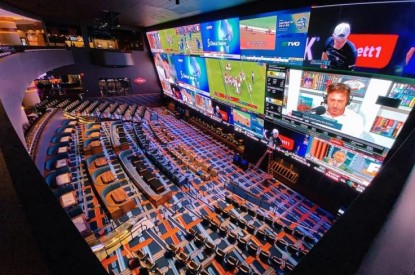SPORTS BETTING
US – US sports betting generates $125.4bn of bets since its inception four years ago
By Phil - 18 May 2022
Since the introduction of sports betting in the US in May 2018, $125.4bn has been placed on sports, and legal sports betting, generating more than $1.3bn in taxes for state and local governments from $8.8bn in total sportsbook revenue.
American Gaming Association’s President and CEO, Bill Miller, said: “May 14 marks the four-year anniversary of the Supreme Court’s landmark decision striking down the Professional and Amateur Sports Protection Act of 1992 (PASPA) and opening the door to the state-by-state legalization of sports betting.
“The unprecedented growth of legal wagering in four short years clearly demonstrates the failure of the federal government’s ban on legal sports betting. It also has served to mainstream the casino gaming industry, generating increased interest from Wall Street, policymakers and media. It’s been a rise no one could have predicted so where are we today?”
He highlighted that 35 states and Washington D.C. have already legalised sports betting, and half of American adults (130m) can currently place legal sports wagers in their home market.
Mr Miller added: “I’ve been in and around politics my whole career and I’m hard pressed to come up with any issue that has been as resoundingly adopted by states in such a short period. And there’s a reason for that: policymakers understand that regulated, legal sports betting provides a safe alternative to the illegal market while generating important tax revenue That’s proven out: since May 2018, legal sports betting has generated more than $1.3bn in taxes for state and local governments from $8.8bn in total sportsbook revenue.
Over the last four years, gaming companies and leagues, teams and media companies have formed 310 partnerships with sports betting companies.
Miller explained: “This is certainly a vast departure from the pre-2018 status quo, when a sportscaster’s veiled reference to a bad beat was usually the most the industries would intertwine. Now, new partnerships are delivering value for leagues, teams and broadcasters while deepening fan engagement.”
Americans are also in favor of gaming’s expansion, with about three-in-four (73 per cent) American adults supporting legal, regulated sports betting for adults in their state, according to American Attitudes surveys conducted in both 2020 and 2021.
That support has carried over to the ballot box. Every state that has put sports wagering on the ballot has passed: Arkansas (2018), Colorado (2019), Louisiana (2020), Maryland (2020) and South Dakota (2020).
Despite illegal operators’ decades-long head start, the growth of the legal sports betting is steadily cutting into the offshore market. That can be seen in the $125.4bn wagered over the last four years.
Mature markets point to where we are headed. Regulated sports betting brands make up more that 85 percent of sportsbook searches in legal markets like New Jersey and Pennsylvania.
But there is still work to be done. Offshore sportsbook brands search grew by 38 per cent between 2020-2021. These brands are looked up more than three (3.6) times as often as a regulated equivalent nationwide—Bovada alone accounts for 50 percent of all sportsbook searches. More than half (55 per cent) of consumers who placed most of their wagers with illegal operators believed they bet legally.
Mr Miller added: “This reinforces not only the importance of consumer education but also the need to crackdown on illegal operators that continue to take advantage of customers who are often unaware they are betting illegally. That’s why the American Gaming Association (AGA) recently called on the U.S. Department of Justice to use their power to investigate and indict these operators. We’re advancing responsible gaming education and supporting problem gambling services with more resources than ever. Take AGA’s Have A Game Plan® campaign, for example, with nearly 30 partners spanning major US sports betting operators, leagues and teams, media companies, operators, suppliers and other industry stakeholders.”


